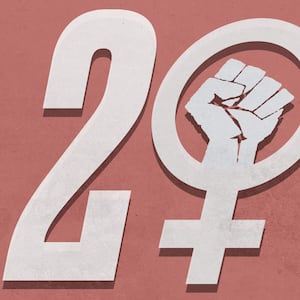The national attention focused on the historic number of women elected to Congress Tuesday eclipsed news that two states passed measures with the potential to end the right to an abortion.
West Virginia and Alabama added new language to their constitutions proclaiming that the states do not support the right to an abortion and are not required to fund it. The Alabama law also added language about protecting “the rights of unborn children” and supporting “the sanctity of unborn life.”
The West Virginia referendum passed with 52 percent of the vote, while the Alabama version passed with 59.
The amendments are especially important in light of the new, anti-abortion majority on the Supreme Court ushered in by Justice Brett Kavanaugh. If the Court were to overturn Roe v. Wade—the landmark decision making abortion legal across the country—both states would immediately outlaw the procedure and preclude women from suing over the ban.
Leslie McGorman, the deputy policy director for NARAL, previously told The Daily Beast that anti-abortion groups used these referendums as a test of which policies resonated most with voters. She expected to see similar proposals on ballots around the country if the referendums were successful.
“They are definitely considering this as a way to open the door to ban abortion,” she said.
The amendments’ supporters, meanwhile, framed them in terms of economic justice. Both measures prevent state funds from going toward abortions, meaning anyone using state-sponsored healthcare such as Medicaid will no longer be covered for the procedure.
In a statement, Susan B. Anthony List President Marjorie Dannenfelser called the use of Medicaid funds for abortions an “outrageous abuse” and claimed it had cost taxpayers in West Virginia alone nearly $10 million.
Abortion rights advocates saw it differently. Katherine H. Ragsdale, Interim President & CEO of the National Abortion Federation, said in a statement that barring coverage for abortions would create “profound hardships for women and families, particularly for those who already face significant barriers to receiving high-quality health care.”
“We hear about this devastating impact every day from women calling our Hotline who are struggling to obtain the abortion care they need—especially in states, like West Virginia, which have only one abortion clinic,” she said.
Voters in Oregon voted down a similar measure on Tuesday that would have barred state funding from going toward abortions.







